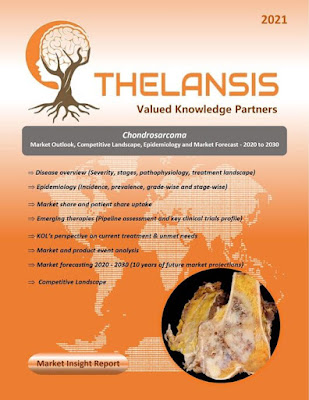Chondrosarcoma – Market Outlook, Epidemiology, Competitive Landscape, and Market Forecast Report – 2023 To 2033

Chondrosarcoma is a rare malignant tumor that forms a cartilaginous matrix. Chondrosarcomas arising de novo are termed primary chondrosarcomas, while those developing in pre-existing benign cartilaginous tumors such as osteochondroma or enchondroma are referred to as secondary chondrosarcomas. CHS constitutes various groups of malignant bone tumors and encompasses multiple histological subtypes. Overall, conventional CHS is the most common subtype. It accounts for 85% of CHS, followed by dedifferentiated (10%), mesenchymal and clear cell CHS, these two representing less than 2% of all CHS cases. Conventional CHS can develop de novo or in a pre-existing enchondroma and osteochondroma. CHS is classified into three grades based on cellular atypia, mitotic figures, and cellularity. CHS grades 1 and 2 are represented by 85% of all CHSs, 15% of cases are grade 3, and the dedifferentiated CHS. According to the latest WHO recommendations, CHS should be classified into central or secondary...


